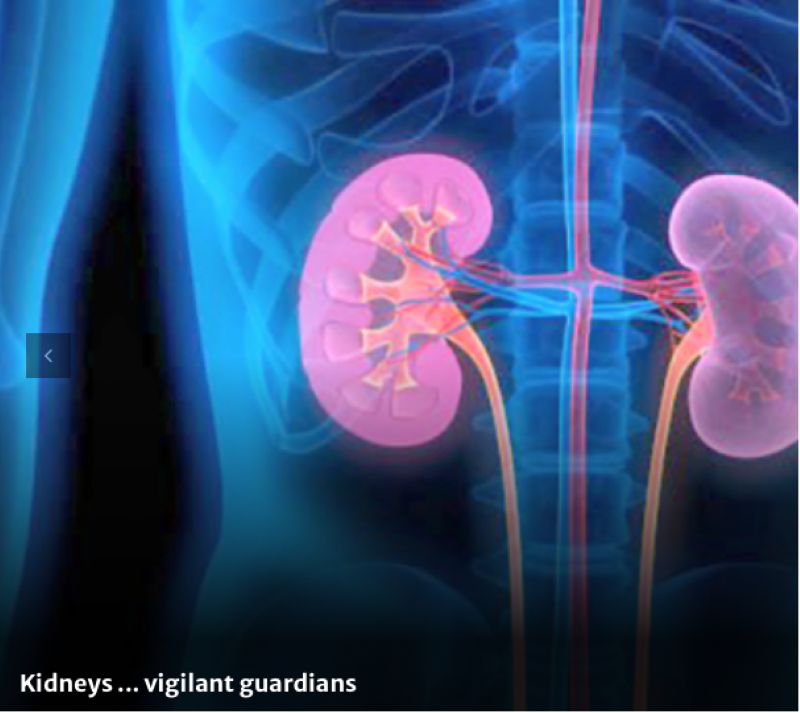
OUR kidneys act as vigilant guardians, removing wastes and extra fluid from our blood, controlling our body’s chemical balance, aiding in blood pressure regulation, fostering bone health, and facilitating the production of red blood cells.
Chronic kidney disease (CKD) is a progressive loss in kidney function over a period of months or years.
Each of your kidneys has about a million tiny filters, called nephrons. If nephrons are damaged, they stop working.
For a while, healthy nephrons can take on the extra work. But if the damage continues, more and more nephrons shut down. After a certain point, the nephrons that are left cannot filter your blood well enough to keep you healthy.
When kidney function falls below a certain point, it is called kidney failure. Kidney failure affects your whole body, and can make you feel very ill. Untreated kidney failure can be life-threatening.
Early CKD has no symptoms therefore AMH’s head of the nephrology department, Dr Shamik Shah emphasises the pivotal role of early detection, stating: “Diabetes and high blood pressure account for about 70 per cent of cases of kidney failure. If detected early, progression of kidney diseases can be halted. A simple urine test is a good screening tool.” He strongly recommends that all patients with diabetes and high blood pressure undergo kidney function tests at least once a year.
CKD, affecting more than 850 million people globally and claiming 3.1m lives in 2019, has ascended to become the eighth leading cause of death globally.
Dr Shah warns that without intervention, it is projected to climb to the fifth leading cause of years of life lost by 2040. This underscores the imperative for a collective effort to address the challenges surrounding kidney health.
While CKD treatment efforts have historically concentrated on preparing for kidney replacement therapies, recent breakthroughs offer unprecedented opportunities to prevent or delay the disease and mitigate complications. Dr Shah emphasises that these breakthroughs can significantly enhance both the quality and quantity of life for those with CKD.
Dr Shah identifies barriers to treatments such as lack of awareness, limited knowledge of newer therapeutic strategies and shortages of kidney specialists as contributors to profound disparities in accessing life-saving treatments.
To tackle this global health challenge, Dr Shah advocates for a shift in focus towards CKD awareness and capacity building within the healthcare workforce.
Achieving optimal kidney care requires addressing barriers at multiple levels, considering contextual differences across world regions.
In conclusion, Dr Shah’s insights underscore the urgency of prioritising kidney health for all. Together, let’s break down barriers, raise awareness, and work collectively to ensure kidney care awareness.
To book an appointment, call 17177711 or whatsapp 33644177.
Send us your company’s news today and they could be featured on ABC’s Community News tommorow.